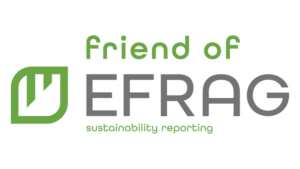ESG Transformation at Losberger De Boer: From Compliance to Competitive Advantage
Customer: Losberger de Boer
Category: Manufacturing
Losberger De Boer Holding GmbH (Losberger De Boer) is one of the world’s leading suppliers of temporary and semi-permanent space solutions. Founded in 1919 and headquartered in Bad Rappenau (Fürfeld), Germany, the company delivers modular, rapid-deployment structures for major international events, industrial applications, and public infrastructure. With eight production facilities, 21 sales offices worldwide, and around 800 employees generating €219 million in revenue (2024), Losberger De Boer has established itself as a global leader in flexible construction systems.
In partnership with the DFGE – Institute for Energy, Ecology and Economy, Losberger De Boer embarked on a multi-year sustainability transformation aimed at building the foundations for structured ESG management and CSRD-aligned reporting. Beginning in 2022 with its first Corporate Carbon Footprint, the collaboration evolved to include EcoVadis performance enhancement, a Double Materiality Analysis (DMA), and the integration of the European Sustainability Reporting Standards (ESRS) into the company’s processes.
This partnership not only enhances Losberger De Boer’s compliance readiness but also transforms ESG reporting into a strategic instrument that supports data-driven decision-making and long-term competitiveness.
Onno Koole
CSRD Lead (2022-2025), Losberger De Boer Group
„We chose DFGE for their deep regulatory expertise and ability to manage complex sustainability projects with precision and transparency. Their methodological clarity & process competence have helped us create a reliable ESG data framework, improve our EcoVadis performance, and set the stage for a long-term, strategic ESG management system.“
Challenges
Transforming ESG from Obligation to Opportunity
As Losberger De Boer advanced its sustainability agenda, the company faced the challenge of evolving from a rating-driven approach toward a structured and governance-based ESG management system aligned with the Corporate Sustainability Reporting Directive (CSRD).
Although the company had achieved notable EcoVadis results since 2022, formalized ESG processes and governance structures were still in early development. ESG awareness was growing among internal experts, but organizational alignment and consistent reporting processes were not yet established. Initially operating through four independent business divisions without a dedicated Group Sustainability Manager made coordination, data consolidation, and governance implementation particularly demanding.
Moreover, ESG reporting was initially viewed as a compliance exercise rather than a strategic management tool. The company needed to understand how to operationalize the ESRS framework to evaluate and manage impacts, risks, and opportunities — while simultaneously preparing for regulatory changes such as the evolving EU Omnibus process and shifting CSRD timelines.
Finally, it became clear that integrating climate transformation and decarbonization into strategic planning was essential to meet future expectations and strengthen resilience. The overarching challenge lay in translating legal and regulatory obligations into actionable, company-specific concepts embedded within Losberger De Boer’s structures and culture.
Solution
Translating Complex Requirements into Actionable Steps
Since the start of their collaboration in 2022, DFGE and Losberger De Boer have systematically developed a robust ESG framework that aligns with both regulatory and strategic business needs
DFGE provided comprehensive multi-project management, ensuring that all ESG workstreams – from data collection to materiality assessment and regulatory implementation – were fully integrated. Through transparent communication, dedicated workshops, and advisory support, DFGE helped Losberger De Boer simplify complex regulatory demands and convert them into pragmatic, business-specific processes.
The Double Materiality Analysis (DMA), guided by DFGE, was a cornerstone of this process. Based on the CSRD framework, it assessed Losberger De Boer’s impacts, risks, and opportunities across seven topical standards, including Climate Change (E1), Biodiversity (E4), Resource Use (E5), and Business Conduct (G1). This provided methodological clarity and stakeholder engagement, enabling Losberger De Boer to define clear ESG priorities and an actionable roadmap.
Beyond compliance, DFGE translated the CSRD framework into tailored disclosure concepts, defined relevant data points, and established a practical reporting structure that now informs Losberger De Boer’s governance and decision-making. The implementation of the EQS Sustainability Cockpit as a centralized IT platform further strengthened data consistency and transparency across all business units.
This integrated approach has helped Losberger De Boer move beyond the notion of ESG as a reporting exercise, embedding it as a strategic management discipline that enhances operational efficiency, resilience, and long-term value creation.
Result
From ESG Compliance to Strategic Impact
The collaboration between DFGE and Losberger De Boer has produced tangible, measurable outcomes that underscore the success of this strategic partnership.
Performance Improvements: Losberger De Boer’s EcoVadis score increased from 77 (2024) to 82 (2025), earning a Gold Medal and placing the company in the top 5% of rated firms, with a notable +9-point improvement in Sustainable Procurement. Around 350 CSRD-relevant data points have been defined and collected across 5 topical standards, and the DMA identified 28 material IROs across seven topical standards – creating a clear foundation for future ESG priorities.
Organizational Transformation: Sustainability responsibilities are now firmly anchored at management and board level, coordinated by a newly appointed Group Sustainability Manager. Around 25 internal stakeholders have been trained through DFGE workshops, strengthening ESG literacy and establishing a culture of sustainability governance across all business units.
Strategic Benefits: With DFGE’s guidance, Losberger De Boer has started to adopt the ESRS framework not only as a compliance tool but as a data-driven management instrument to evaluate and steer environmental and social impacts. The first consolidated dataset for CSRD alignment now covers S1, S2, S4, E5, and G1, with additional ESRS topics (E1, E4 and ESRS 2) currently under development.
Looking ahead, Losberger De Boer and DFGE are extending their collaboration to include a Climate Risk & Opportunity Analysis, a Climate Transition Plan, and preparation for Science Based Targets initiative (SBTi) validation — reinforcing the company’s commitment to a low-carbon future and sustainable growth.
Chaima Madani
Group CSR Manager, Losberger De Boer Group
„The partnership with DFGE has been characterized by professionalism, transparency, and trust. Together, we have built a strong foundation for ESG management, and we look forward to continuing our collaboration as we advance our sustainability journey.“








